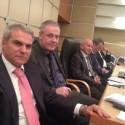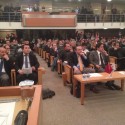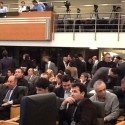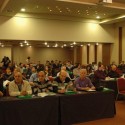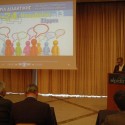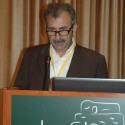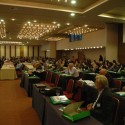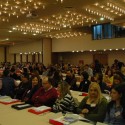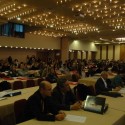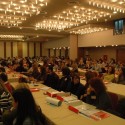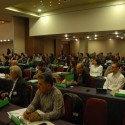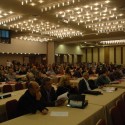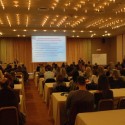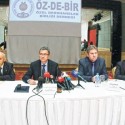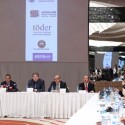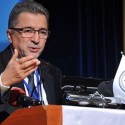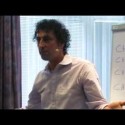
As the field of private tutoring grows in every national jurisdiction around the world, governments are starting to take notice. However, an industry cannot simply appear. Industries and markets are created when consumers make choices about the things they would like. Markets reflect the desires of households. When household decide to spend money on something, then markets provide it. Private tutoring has only arisen and grown because parents seek tutors. Any response by government must understand this fact.
It is also important to understand why parents seek private tutors. Private tutors are taken on for many reasons some of which include that a child has particular learning needs, a student requiring greater self-confidence for subject content mastery, an opportunity to learn something not provided by the school, to supplement and reinforce the school experience, and to take a measure of control over the outcomes of education. Private tutoring may also be taken on in order to prepare for particular tests or exams including transfer tests for entry into a particular university or school, and achievement on a particular examination. Note that none of these reasons asserts a failure of public education.
Regulatory responses
There are different means by which regulators can respond to private tutoring. At present in most nations regulation for private tutoring is based on commercial law. This means that the need to protect consumers as buyers of services is the focus. Commercial laws typically protect consumers through ensuring that businesses deliver on the services promised, allow for refunds and do not engage in misleading or deceptive advertising. In some nations child protection is an additional set of regulations to which there must be adherence.
The different government responses to the growth of private tutoring around the world may be summarised as ranging from active encouragement through to a partial ban. Most nations take neither of these approaches, but opt to either do nothing or have a small level of regulation. The preferred model for governments internationally and also the private tutoring industry is that of self-regulation.
Government encouraging private tutoring
The active encouragement of private tutoring can be seen in the responses of the governments in USA, France, Singapore and Malaysia. In France, taxation relief is offered to those to invest in private tutoring. In Malaysia teachers are allowed to tutor for up to 4-hours per week and in Singapore for up to 6-hours per week. In the USA the No Child Left Behind Policy allocated funds to schools in order that they engage private tutors for students requiring literacy or numeracy support. Incidentally, this has also been an approach used in Australia and in South Africa. Currently mainstreams schools in the UK are using the pupil premium for private tutoring.
The ‘do nothing’ approach
A ‘hands off’ approach can be seen in numerous nations. No regulation specific to tutoring exists in Canada, Australia, New Zealand or Britain or in most other countries where tutoring takes place. Normal commercial laws apply to private tutors including taxation laws and in some nations a background police check for child protection purposes is required.
Partial regulation
Partial regulation is seen in many nations such as Korea, Singapore, Malaysia, Vietnam, Hong Kong and Lithuania. Generally these nations require that private tutoring businesses register with the relevant Ministry of Education and comply with standards of quality in terms of the tutoring environment. This means that successful registration includes an element of workplace safety. In this way the restrictions act as a form of licensing.
Stricter bans
Some governments have taken the very extreme measure of a total ban. Nations that have done this in the past include Korea and Mauritius. In both instances a total ban has been unsuccessful. Kenya, Myanmar, the UAE and India currently have a stricter ban and Turkey has announced a total ban is imminent. In Kenya the ban takes the form of schools being banned from allowing students to be privately tutored during school holidays – however this ban is routinely broken. In India, the UAE and Myanmar the ban is specific to teachers and in Korea the ban relates to private tutoring that takes place after 10pm.
Self-regulation
An alternative to regulation is the market-based response of self-regulation. Self-regulation occurs when an industry takes it upon itself to exercise responsibility and address any issues or concerns expressed by government, consumers and other stakeholders. In this model, the industry creates a peak representative body. The peak body then articulates best practice and holds its member businesses accountable to a Code of Ethics. The most robust industry Codes are supported by consumer protection regulators.
There are two alternative approaches to self-regulation: a reactive approach and a proactive approach.
Reactive self-regulation
Reactive self-regulation occurs when an industry feels threatened, usually because the government is threatening a ban or the imposition of strict regulations. Nations where self-regulation has occurred due to concerns expressed by government are the UK, Korea and Hong Kong. However several nations have no peak self-regulation body despite government concerns: India, Singapore, Vietnam, Pakistan and South Africa are examples.
Proactive self-regulation
Proactive self-regulation occurs when the industry creates a peak body but there is no real threat from government. Examples of nations with such bodies include Greece, Australia, New Zealand, USA, Cyprus, Germany, Netherlands and Turkey. Proactive self-regulation normally only demands that members of the peak body abide by a Code of Ethics.
A system of conflict resolution and accreditation are important aspects to responsible self-regulation.
The proposed Turkish government ban and possible solutions
The Erdogan government is proposing a total ban on private tutoring. Evidence indicates that such a ban is doomed to failure. Thus it is a waste of time and resources and is causing great concern. The issue is that the reasons for the proposed ban are not clear. The press has widely reported that possible reasons include that the growth of private tutoring is directly due to the loss of confidence in the public education system. It has also been reported that the Erdogan government has a dispute with Islamic scholar Gülen, who runs about one-fifth of the nation’s tutoring businesses.
Taking these possible reasons at face value reveals that the proposed ban is a flawed policy response. Firstly, if there is a loss of confidence in public education then that issue needs to be addressed directly by the government. Banning private tutoring will not address any perceived issue with public education. That is a separate issue from any concerns about private tutoring.
The issue of public school funding may need to be addressed. Imaginative regulators may suggest that taxes derived from private tutoring firms can be applied to support public education, if that is an issue.
If the issue centres on a dispute with the Gülen movement then an outright ban is again a flawed response. Why disrupt an entire industry, families and students to make a point? Why threaten to punish with ridiculous fines when, even in nations where some type of ban exists, the sanctions are not punitive?
The right to choose
The Universal Declaration of Human Rights Article 26(3) UDHR states that parents have the prior right to choose the kind of education they want for their child. Private tutoring involves the discretionary allocation of funds to the private sector by parents interested in shaping the educational outcomes and opportunities of their children. The proposed ban represents an assault on human rights. Of all rights, the right to an education is one of the most important.
Bans fail
Banning parents from exercising choice will not stop them from doing so. Current evidence from Korea, Kenya and Mauritius indicates that banning private tutoring simply leads to the practice being done in secret. This actually makes any issues in relation to the industry more problematic for the government because the secrecy it induces means taxes are avoided, pedagogy and minimum standards all cannot be controlled.
The way forward
Before to considering any changes the government should conduct an inquiry, inclusive of parents, the industry and mainstream educators. This inquiry could at least determine what, if any, response is appropriate to ameliorate any concerns. Of course, the industry too should ask tough questions such as how the sector can work with mainstream schools in the interests of parents and their children. It should also look at a strong, though voluntary, Code of Ethics and some form of minimum accreditation.
Whatever the next steps are, engagement, openness and consideration must be priorities.
Mohan Dhall
Founder – Global Tutoring Association (GTA)
CEO – Australian Tutoring Association (ATA)
